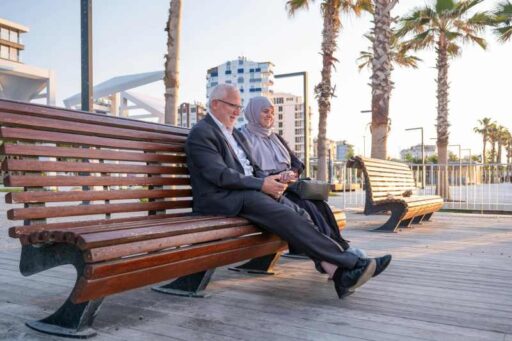To retire early as an expat requires meticulous financial planning, balancing income generation, cost management, taxation, and economic stability.
Unlike traditional retirees who rely on government pensions or employer-based retirement plans, early retirees must ensure their investments and passive income sources are sustainable for decades.
If you are looking to invest as an expat or high-net-worth individual, which is what I specialize in, you can email me (advice@adamfayed.com) or WhatsApp (+44-7393-450-837).
This includes if you are looking for a second opinion or alternative investments.
Some of the facts might change from the time of writing, and nothing written here is financial, legal, tax or any kind of individual advice, or a solicitation to invest.
While moving abroad can lower living costs, poor financial planning can quickly lead to financial ruin, especially when facing currency fluctuations, inflation, healthcare costs, and legal restrictions on earning income in a foreign country.

Can you retire early as an expat?
Of course. But it really depends on various factors, such as your income, host country, lifestyle and spending, habits, family needs, etc.
To have a more comprehensive answer according to your situation, you will need to look at all these things together.
How much money do you need to retire early as an expat?
The amount needed for early retirement depends on several factors:
- Personal lifestyle and spending habits – Do you want a luxurious lifestyle or a frugal one?
- Geographic cost differences – A retiree in Thailand or Colombia will need much less than one in Switzerland or Australia.
- Healthcare costs – Some countries have affordable public healthcare, while others require private insurance.
- Investment returns and market volatility – Ensuring inflation-adjusted returns can sustain retirement for decades.
A common benchmark is the 4% rule, which suggests you can safely withdraw 4% of your retirement portfolio annually without running out of money. However, early retirees should adjust this rule because:
- Longer retirement horizon – A 30-50 year retirement requires more conservative withdrawal rates (3%-3.5%).
- Market volatility – Economic downturns or crashes can erode savings early.
- Inflation risks – Emerging markets may experience rapid inflation, requiring adjustments in spending.
Key Calculations
- Estimate annual expenses – Include housing, food, healthcare, travel, and leisure.
- Multiply by 25-30 – The traditional method suggests accumulating at least 25-30 times annual expenses for a secure retirement.
- Consider geographic arbitrage – Moving to cheaper countries can extend retirement funds significantly.

Best Investments to Retire Early as an Expat
Expats who retire early must generate sustainable income streams since they will not have access to traditional pensions or government support.
The key is diversification, ensuring that income sources are not tied to a single country or economy.
Investment Income (Passive Growth Strategy)
- Dividend stocks – Investing in dividend-paying blue-chip stocks to generate a reliable income stream.
- Index funds & ETFs – Long-term exposure to S&P 500, MSCI World Index, or Nasdaq ETFs.
- Bonds and fixed income – Government and corporate bonds provide stability during market downturns.
Real Estate Investments
- Rental properties in low-tax jurisdictions – Investing in rental income properties abroad can generate consistent cash flow.
- REITs (Real Estate Investment Trusts) – Offers property market exposure without the hassle of direct ownership.
- Short-term rentals (Airbnb or VRBO) – Some expats own properties in tourist-heavy locations to generate seasonal income.
Business and Online Income
- Remote work and consulting – Freelancing in tech, finance, writing, or marketing provides location-independent income.
- Online businesses – E-commerce, affiliate marketing, or running a blog can provide semi-passive income.
- Royalties from intellectual property – Writing books, licensing content, or selling software can generate residual income.
Hidden Costs of Retirement Abroad
Many early retirees fail to account for the hidden costs that can erode their savings faster than expected.
These costs—ranging from visa fees and healthcare to currency fluctuations and cultural adaptation expenses—must be factored into financial planning to avoid unpleasant surprises.

Visa Fees & Residency Renewals
While many countries welcome retirees with special visas, these often come with significant financial requirements.
Some require expats to show proof of steady income, maintain a minimum bank balance, or even invest in real estate to qualify for long-term residency.
Additionally, these visas often need renewals every 1-5 years, with associated renewal fees and processing costs.
Some countries tighten immigration laws over time, meaning an affordable and accessible visa today may become more restrictive in the future.
For expats relying on retirement visas, ensuring that they meet financial requirements long-term is crucial.
Healthcare & Insurance
Healthcare is one of the biggest hidden costs for expats, especially in countries where public healthcare is unavailable to non-citizens.
Some retirees take advantage of medical tourism, returning home or traveling to a nearby country for major medical procedures.
However, traveling for healthcare adds additional costs, including flights, lodging, and post-procedure care. Planning for long-term medical needs is essential to ensure that retirees can afford care as they age.
Fluctuating Exchange Rates
Exchange rate volatility is one of the most underestimated financial risks for expats. Many retirees rely on pensions, Social Security, or investment income from their home country, meaning fluctuations in currency value can drastically affect purchasing power.
To mitigate exchange rate risk, retirees should:
- Diversify income sources by keeping part of their savings in local currency.
- Use multi-currency bank accounts to reduce conversion fees.
- Consider hedging strategies, such as keeping a mix of assets in different currencies.
Failing to account for currency fluctuations can quickly erode financial security, leaving expats vulnerable to economic instability in their host country.

Best Expat Jobs for Early Retirement
Some careers make early retirement more attainable for expats, either due to high salaries, flexible working conditions, or low expenses.
High-Income Jobs for Expats
- Tech & Software Engineering – High salaries, remote work, and investment-friendly income.
- Finance & Investment Banking – Strong earnings, bonuses, and ability to invest early.
- Medical Professionals (Doctors, Nurses, Dentists) – Strong demand in many countries, leading to financial security.
- Entrepreneurs & Business Owners – Owning a scalable online business provides passive income.
- Freelancers & Consultants – Remote-friendly careers in marketing, legal consulting, and finance allow flexibility.
How to Retire Early on Low Income as an Expat
Retiring early isn’t only for high earners—expats with modest incomes can still achieve early retirement by making smart financial moves.
The key is strategic planning, which includes lowering expenses, maximizing savings, and leveraging global cost-of-living differences.
Geo-Arbitrage: Lower Cost of Living by Moving Abroad
One of the most powerful tools for low-income early retirees is geo-arbitrage, which involves earning in a strong currency (USD, EUR, AUD) but living in a country where the cost of living is significantly lower.
Benefits of Geo-Arbitrage
- Lower housing, food, and healthcare costs while maintaining a high quality of life.
- Stretch savings longer by reducing withdrawals from investments.
- Some countries offer retirement visas with low income requirements, making them accessible to expats.
By choosing the right country, even a small pension or part-time income can support a comfortable lifestyle.

Live in Shared Housing or Low-Cost Accommodation
Housing is one of the biggest expenses in retirement, but it can be drastically reduced by making smart choices about where and how to live.
Cost-Saving Housing Options Abroad
- Co-Living Spaces – Many expats share apartments, rent rooms in larger homes, or join co-living communities to save money.
- House-Sitting & Home Exchanges – Some retirees reduce housing costs to near zero by house-sitting internationally or using home exchange platforms.
- Long-Term Rentals Instead of Short-Term Stays – Airbnb and hotels are expensive—securing a long-term lease in a local rental market significantly lowers monthly housing costs.
- Choosing Local Neighborhoods – Many expats overpay by living in tourist-heavy areas. Moving to local neighborhoods can cut rent by 30-50%.
Living in affordable housing arrangements ensures that a lower income stretches further, making early retirement sustainable.
Invest Aggressively Early: Growing Wealth on a Modest Salary
Even with a low income, consistent and disciplined investing can build significant wealth over time.
Many early retirees with modest salaries have achieved financial independence by focusing on long-term, low-cost investments.
Even if someone earns $40,000 per year, saving and investing just $500 per month over 20 years at 8% annual returns could grow to nearly $300,000—enough to retire early in low-cost countries. You can try calculator with the figures for you.

Work Part-Time in Retirement: Semi-Retirement for Financial Flexibility
For expats with low savings, working part-time in retirement can help bridge financial gaps while allowing them to enjoy a more relaxed lifestyle. Many early retirees continue earning small amounts of income, which extends their financial independence.
Part-Time Jobs for Retired Expats
- Teaching English – Many countries in Asia, Latin America, and Europe offer flexible English-teaching jobs for expats. Online tutoring (e.g., VIPKid, Cambly) also provides location-independent income.
- Remote Freelancing & Consulting – Skills in marketing, programming, writing, or finance can be monetized through platforms like Upwork, Fiverr, or remote consulting.
- Seasonal Jobs – Some expats work as tour guides, Airbnb hosts, or in hospitality for extra income during peak seasons.
- Online Businesses – Many retirees earn through blogging, dropshipping, content creation, or passive income projects.
Working even 5-10 hours per week in retirement can reduce withdrawals from savings, making financial independence more sustainable in the long run. It also helps you stay engaged both physically and mentally.

Optimize Tax Strategies: Keep More of Your Money
Many expats overlook tax planning, but smart tax strategies can help low-income retirees preserve their wealth. By living in low-tax jurisdictions, retirees can significantly reduce their financial burdens.
Tax-Saving Strategies for Retired Expats
- Move to a Tax-Friendly Country – Some countries have zero or low taxes on foreign income, helping retirees keep more of their investment returns.
- Take Advantage of Tax Treaties – Many countries have double-taxation agreements that prevent expats from being taxed twice on the same income.
- Use Capital Gains Tax Exemptions – Some expats sell investments strategically to avoid high capital gains taxes.
- Structure Investments Wisely – Holding dividend-paying stocks in tax-friendly accounts (e.g., IRAs, ISAs) can reduce overall tax exposure.
With the right mindset, discipline, and financial planning, expats with modest earnings can still achieve early retirement and financial freedom.
Pained by financial indecision?

Adam is an internationally recognised author on financial matters with over 830million answer views on Quora, a widely sold book on Amazon, and a contributor on Forbes.



